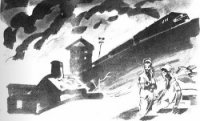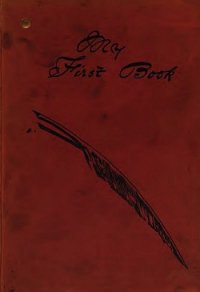Operation Nemesis: The Assassination Plot that Avenged the Armenian Genocide - Bogosian Eric (мир книг .txt) 📗
Stepping into the offices, Tehlirian found himself shaking the hand of the Armenian Revolutionary Federation’s Central Committee secretary, “Hamo” Paraghamian. Paraghamian, an insurance salesman by trade, was an extrovert, a man with great appetites, evidenced by his large girth. His jolly demeanor disguised an intense commitment to the assassination effort. It would be Hamo’s job to transfer the funds that Aaron Sachaklian collected through charitable contributions and wire them to the Nemesis operatives in Europe.
Tehlirian did not understand that in the world of spies, appearances are deceiving. He had crossed an ocean to do whatever was asked of him, yet once again found himself surrounded by people who spoke casually about the task at hand. This angered the young fedayeen. As Hamo made small talk, Tehlirian felt distant, ill at ease with this “Armenian American” with his tailored suit and chubby cheeks. This man was nothing like the fierce fighters Soghomon had known and loved on the front. Everywhere he went, the Armenians here used big words, had soft hands, soft eyes. They were not to be trusted. Tehlirian found it hard to focus.
Hamo explained to Tehlirian that Talat and his confederates were working with European associates to resuscitate the Turkish state as a prelude to the return of the former leadership. A big part of that effort would be to improve the reputation of Turkey with the West. The former Ittihadists had met with Italians to broker loans and foster military assistance for General Mustapha Kemal’s rebel army. In addition, the Turkish nationalists had been receiving funds from the Soviet Union and had used this cash to order fresh weapons. In Baku, Enver Pasha had made an appearance at the first Soviet-sponsored Congress of the Peoples of the East, claiming to represent the North African Islamic nations. The former CUP bosses were playing a complex game, testing the waters with the Russians, the British, and the Germans, all at the same time, as they sought to build new alliances. The former Ottoman leadership, though chased out of Turkey, was regaining its strength and poised to rise again.
Tehlirian was overwhelmed by what he was hearing.16 He wanted to grab this fat man’s lapels and shout in his face, “Just tell me where the monster is! Is he here in the States? Where is Talat? And how can I get at him? I am a weapon, aim me.” But he bit his tongue and waited. It was important to remain calm. A familiar feeling was stirring in his chest, the illness that had felled him on the front and in Erzincan. It would be very bad if he fainted here in front of these people after coming so far. Another man entered the room.
Tehlirian instantly recognized Armen Garo of the Bank Ottoman attack, Garo who had served in parliament with the murdered Zohrab, Garo who was ambassador for the government of the new Armenian Republic. According to Tehlirian’s memoir, his mood lifted instantly as he realized he was in the presence of a genuine hero of the Armenian nation. Clearly the affinity was reciprocated. Garo shook Tehlirian’s hands “with paternal love and fraternal warmth.”
The horrific killings in Asia Minor had eroded Garo’s spirit, and to Tehlirian he seemed worn. Garo had fought the good fight, had done everything he could, had been a leader during a time when the Tashnags were working with the CUP to overthrow the sultan. When the war began, he had joined the military, he had traveled thousands and thousands of miles. Yet despite all his efforts, a tragedy of epic proportions had transpired during his watch. Garo understood the full dimensions of the debacle more than most. He was soul sick.
The older man outlined all the work that needed to be done, and Tehlirian felt himself growing buoyant with purpose. He was being invited to join the front lines, to make a difference. “We were like members of a family,” said Tehlirian, the man who had grown up barely knowing his father. Now he had found one. And Garo, who wanted to believe that all his efforts on behalf of his people had not been futile, needed someone who would have complete faith in him and who could bravely pick up the torch he himself had carried for so long. He needed someone whose passion equaled his own. Garo suggested they get something to eat. They ended up at the Koko Restaurant,17 only a short walk down the hill.
As the two men became more comfortable with each other, Garo regaled Tehlirian with stories from his glory days as gadfly to the powerful Talat. He recounted how in June 1914, only a few months before the war began, Garo, as a member of the Turkish Assembly, had visited Talat in his office. Talat had complained that the Armenians were once again seeking outside help from Europe for their grievances. The minister of the interior fixed his glare on the Armenian parliamentarian. “Why do you not come to us for help? Why do you have to bring the British in on this?”
Garo had replied that the CUP leaders were not abiding by the spirit of the reforms. As Garo laid it out to his new protege, he knew he was in the right and had refused to give in to Talat’s bullying. The age of the subservient Armenian was over. As far as Garo was concerned, Armenians and Turks were all Ottomans, equal citizens within the empire. It said so in the constitution.
As the argument wore on, Garo could see that Talat was toying with him, “smiling satanically.” Garo realized that there was no point in continuing the debate. But Talat wouldn’t let the matter drop. He insisted on an answer. Garo knew he was being patronized; the time for argument was past. And then, in his next breath, Garo warned Talat that he and the Ittihad were leading the empire down a road to ruin.
Talat replied, “You’ve changed.”
Garo’s last words to Talat were: “We will bring down the great edifice of the Ottoman Empire. It’s only a matter of time.” By relating this dialogue, Garo was painting a picture for the young soldier. He meant to inspire him just as he had been in the Geneva ARF offices almost twenty-five years before. This effort, this “Nemesis,” was not only about revenge. It was about one nation pitted against another. It represented a historic battle. And Garo was inviting Tehlirian to be part of it.
What Tehlirian could not see was that for Garo, probably more than any of the other Nemesis conspirators, the attack on the former Turkish leadership was both political and personal. Garo had watched Talat gloat as he made plans to destroy the Armenians. Nemesis had become necessary not only as a vendetta but also as a way to restore some vestige of dignity to a people who had been crushed so mercilessly. Nemesis was about pride as much as it was about vengeance. Tehlirian was ready to die for his family. Garo was already dying, even as he spoke, of heartbreak.
Garo handed Tehlirian photographs of Talat Pasha, Enver Pasha, Djemal Pasha, and their spouses clipped from newspapers and journals. Three copies of each man’s photograph had been prepared. Since Tehlirian viewed these Turkish leaders as monsters, he was surprised by how appealing their wives were. In his autobiography he asks himself how these women with faces like angels could live with such murderous men, again revealing his naivete.
Focusing on the photo of Talat, Tehlirian made note of the man’s muscular arms and square shoulders. The former interior minister cut an imposing figure. What if something went wrong and he had to attack Talat with his bare hands. Would he have the strength to be able to overcome such a bull? It made no difference; he would welcome the opportunity to grapple with Talat.
Tehlirian then examined the photographs of Enver and Djemal. The twisted points of Enver’s mustache and the young general’s ramrod posture revealed the arrogance of a peacock. That would make him a more vulnerable target in the end. Turning to Djemal, he saw in his eyes a cunning and an appetite for barbarity. Tehlirian stared at the photographs until they swam before his eyes. These men had killed so many. Hundreds of thousands of mothers and children. Innocent people like his own kin had died because of these men. Garo broke the silence. “You know that after 1909, Djemal was governor of Cilicia. After the massacres in Adana. He wanted to break away, form a kingdom of his own.”




